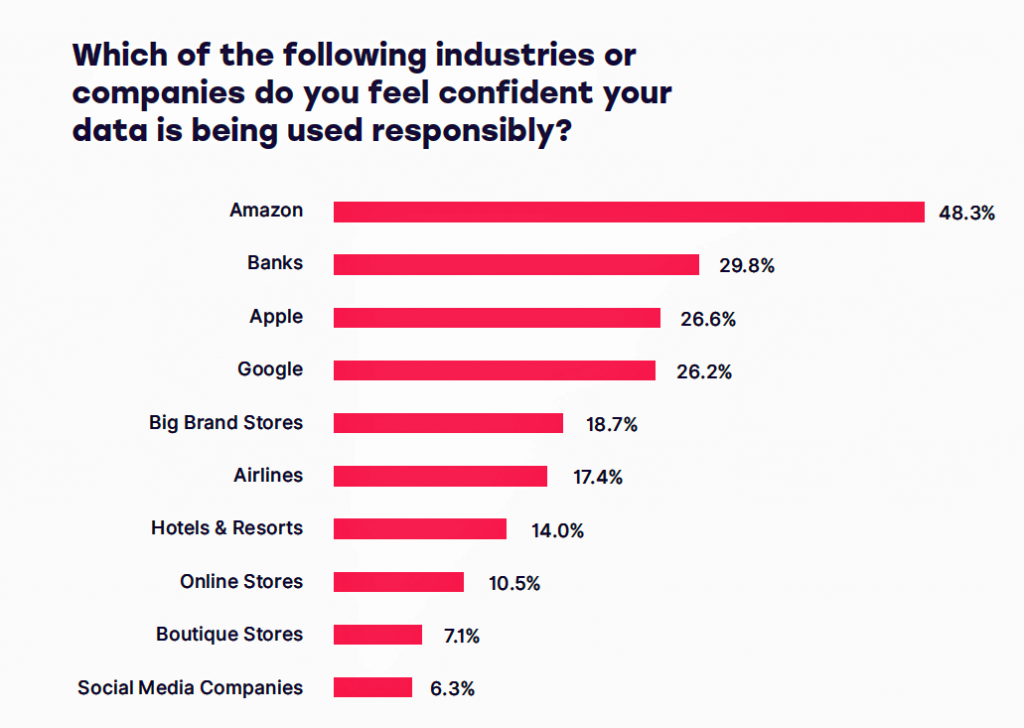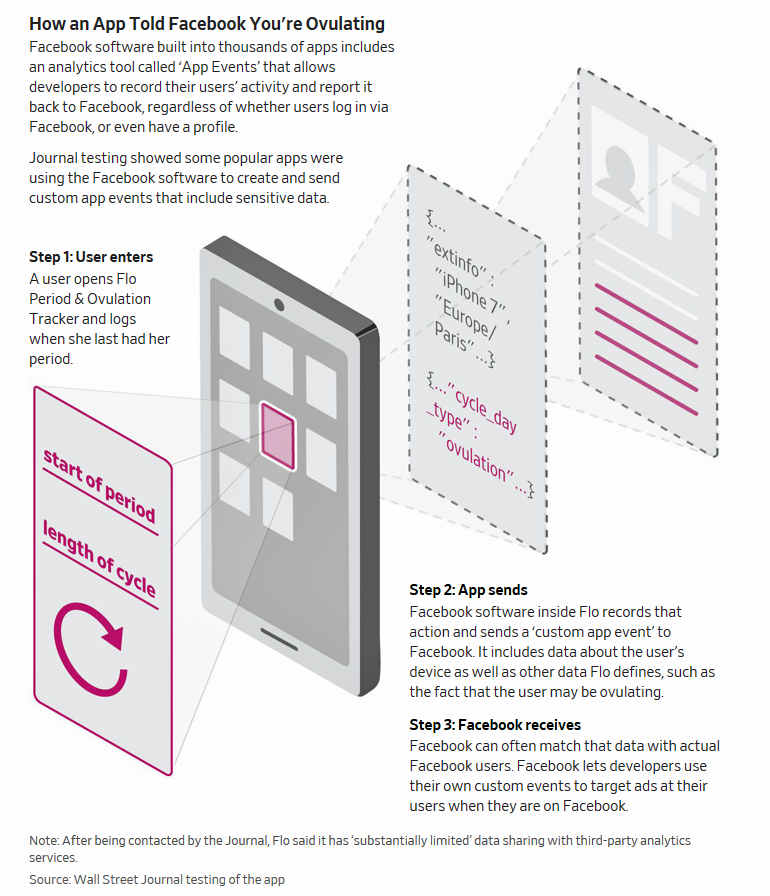
“Is it possible to take personalization too far for consumers?” asks a paper on Privacy and Personalization from SmarterHQ.
The answer is, “it depends.” Consumers are sending mixed messages to marketers about their preferences for being forgotten versus being engaged and recognized. This tension has extreme relevance for personal health and healthcare, as AI and data analytics become quickly adopted by payors, insurance companies, providers, pharma, and consumer tech companies that lie outside of HIPAA privacy and security regulations.
SmarterHQ polled over 1,000 consumers and found that:
- Most consumers are concerned about their data privacy, and believe that companies know too much about them
- Amazon is consumers’ most-trusted user of personal health data, compared with banks, Apple, Google, retailers, airlines, and hospitality. Social media companies rank at the bottom of this trust-roster, and
- Nearly all consumers will share personal data for a more personalized experience and benefits.
Those benefits include discounts on products “I like,” personalized product recommendations, and ease of finding those products. Email is the preferred communications channel by far, compared to social media contacts, mail, text, mobile push or phone calls.
One of the most important findings in this study has to do with peoples’ perceptions of “creepiness” when it comes to personalization. Mobile push notifications are seen as the most creepy aspect of personalization. Consumers said the top creepiest marketing tactics were website chat pop-ups using AI to communicate, and push notifications reminding us to reorder, buy new things, or buy stuff we’ve previously researched.
People generally don’t want their phone-life flow to be interrupted by push notifications that interfere with normal activities. That can feel like being stalked.
What’s the marketer’s cost of being creepy? That two-thirds of consumers would stop buying from brands who commit creepy personalization marketing tactics.
Underpinning that response are consumers’ awareness that their data are being used to sell them more products, lack of an ability to opt-out, and not being told how data is used or that data was being tracked at all.
 Health Populi’s Hot Points: Consumers have indeed grown skeptical in the aftermath of Facebook/Cambridge Analytica, growing cyber-breaches in health care,
Health Populi’s Hot Points: Consumers have indeed grown skeptical in the aftermath of Facebook/Cambridge Analytica, growing cyber-breaches in health care,
European health citizens enjoy the protections of the European GDPR (General Data Protection Regulation). U.S. patients don’t have anything near that level of protection and ability to opt-in with their personal data.
On February 27, 2019, the U.S. Senate Committee on Commerce, Science, & Transportation held hearings on Policy Principles for a Federal Data Privacy Framework in the United States. This Committee has jurisdiction over the Federal Trade Commission (FTC) which is the agency responsible for consumer privacy and information security protections. In the session, Sen Roger Wicker (R-MS) envisioned that, “Congress needs to develop a uniquely American data privacy framework.”
In the meantime, California passed a comprehensive privacy law, the California Consumer Privacy Act (CCPA), slated for implementation on 1st January 2020. This law shares many elements with the GDPR.
This graphic was part of a Wall Street Journal article published February 22, 2019, revealing that mobile apps share data well beyond the user’s intentions — in this case, a woman’s ovulation data eventually shared on Facebook. And so we see in the SmarterHQ study that only 6.3% of consumers felt confident that social media companies are trusted personal data stewards.
That’s part of what the Obama White House recommended in privacy rights legislation — that the data consumers share “should” be used in the context in which the information was initially shared.
As AI continues to grow in use in health/care, for good intentions, it’s crucial for health consumers to feel the trust with healthcare industry stakeholder organizations. U.S. patients, health consumers and caregivers need a comprehensive Federal law in America that supersedes (weaker) individual state laws.
As for Amazon (whose venture with JPMorgan & Berkshire Hathaway is now called “Haven”) — their health care plot thickens, as well. I’ll be monitoring whether consumers-as-patients will continue to value the company’s approach to health data stewardship as they move increasingly closer-and-more-personal in health.
The post The Balance of Personalization and Privacy For Health/Care – Amazon and Beyond appeared first on HealthPopuli.com.
The Balance of Personalization and Privacy For Health/Care – Amazon and Beyond posted first on http://dentistfortworth.blogspot.com
No comments:
Post a Comment